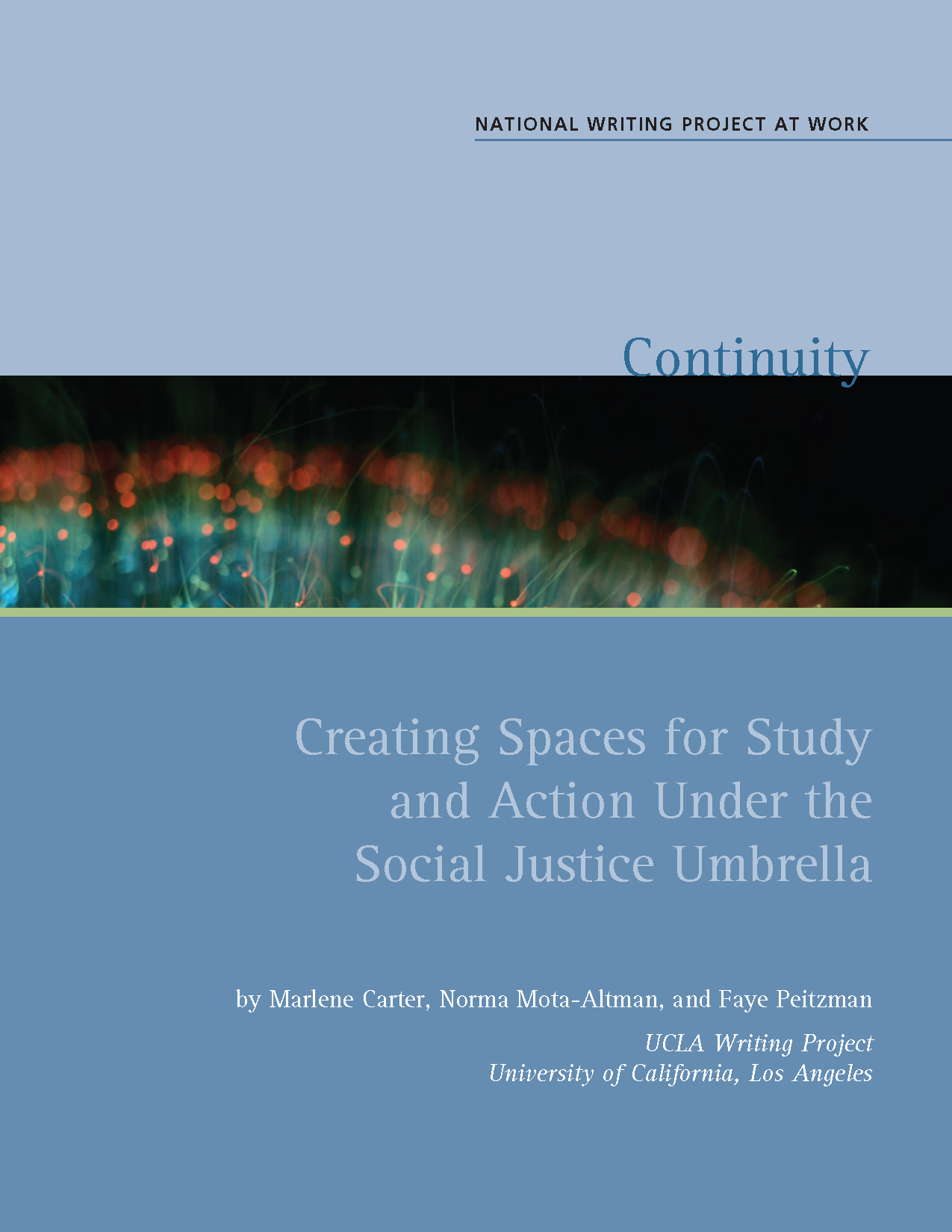Curators notes:
How can we continue to read challenging work together? At the UCLA Writing Project, teachers’ interest in diving into social justice reading led them to create their study group model, a model that works equally well in a Writing Project site’s continuity program or in a district’s PLC program. Read about their work in their Continuity Series monograph, Creating Spaces for Study and Action Under the Social Justice Umbrella.
When we first began our study groups, we never intended that they would be one year experiments, and the groups didn’t develop a curriculum but rather a process. As the groups matured and lessons were learned, the particular focus would necessarily change. In fact, one of the earliest lessons we learned was that not everyone will see the need for discussing race and sexual orientation. (See appendix E for responding to parental concerns.)
The sections that follow present structures and activities that capture two aspects of our work: a consideration of our own identities and attitudes and a focus on working with students. We recognized that the phrase “hard conversations” means those discussions that push members to articulate thoughts, feelings, and stances that may or may not be acceptable to others. The topics are high-stakes; often there is a fear of being misunderstood or being caught in ignorance. Sometimes these conversations are planned; that is, we willingly agree to make ourselves vulnerable in order to break new ground. Just because they are planned, however, doesn’t mean they are “dummy runs.” We can’t avoid the emotional pull of the topics. We can “practice,” but the practice doesn’t stay on an intellectual level (Montaño et al. in draft).


